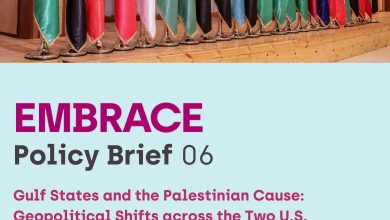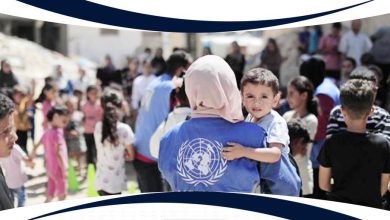Public Opinion’s Poll on the Palestinian Elections

Introduction
Pal-Think for Strategic Studies in cooperation with the Palestinian Center for Policy and Survey Research organized a discussion session titled “Public Opinion’s Poll on the Palestinian Election”. The discussion hosted Khalil Shikaki, the director of PCPSR, and Dalal Iriqat, Assistant Professor of Diplomacy, Conflict Resolution & Strategic Planning at the Arab American University/Graduate Studies, Ramallah campus.
The session was moderated and initiated by Omar Shaban, the director of Pal-Think for Strategic Studies. He welcomed the guests and shed light on the power of polls and surveys to support and determine the Palestinian elections. The discussion anchored on polls results, expectations, statistics, and political developments affecting the Palestinian elections.
Expectations:
Khalil Shikaki said that polls have to be neutral, having a representative sample in addition to the ability of identifying who will participate in the elections. He followed that the participation of conservatives, youths, and women affects the results of the elections. He stated that expectations occur as a result of prior indicators to the elections. Shikaki mentioned an example of Hamas winning the 2006 elections amid the presence of several indicators. As for this time of elections, expectations are that if the Cairo Meetings concluded with positive results, youth participation in elections will increase otherwise it will dramatically decrease. The current participation in elections does not exceed 70% of the population; it was over 77% in the past, however. Dr. Khalil clarified that each question of polls includes a checklist relating to the procedure. Then he expected the most primary question addressed in that regard is “Who did you elect the last time?”
In his turn, Shikaki expected that there is a fear that may hinder people to express their opinions in polls. Polls executed signaled that Hamas will win in Gaza, Hebron, and other cities. The center expects that current President will not win the presidential elections if a candidate from Hamas, like Ismail Hanya, was nominated as the latter gains much traction from his party and the Palestinian people in general. In this regard, it is believed that many people may not vote for Hamas, but will vote for Hanya. Expectations reveal that Marwan Barghouthi will win the presidency if he was nominated regardless by whom he may be competed.
Significance of Polls
Speaking in a row, Dr. Dalal emphasized the importance of polls and surveys during the absence of the Legislative Council. She also pointed out that the purpose of the survey is to gauge public awareness of Palestine’s ethics infrastructure and the functions of the elections. She expressed that the mechanisms applied should systematically follow up on strategic and flexible approaches. In addition to the electoral system, she valued the importance of encountering polls and surveys on the political system. She added that results vary depending on the methodology used to ask and receive answers – either face-to-face or by phone calls.
Statistics
Polls showed that if Mohammad Dahalan formed his own electoral list and was nominated, he will get 7% of the votes and in this case Fatah itself will get 27%. On the other hand, if, Marwan Barghuothi formed his list and was nominated, his list will get 25% of the total votes and Fatah will, in this case, get 19%. If there were no Fatah competitors nominees, Fatah will get 38% and Hamas 34% from the total votes, but 20% of voters have not yet decided to what list they will vote.
As for the legislative elections, latest polls indicate that Hamas will get one third of the total votes, Fatah will get a bit more than that, the other parties will get 10%, but the rest has not yet decided. Dr. Khalil noted that youth’s power may influence these results, keeping in mind that all results can change due to any occurring political developments such as wars, Wefaq Government formation, social insurance, relations with Israel, and the US recognizing Jerusalem as Israel’s capital.
In case Mohammad Dahalan was nominated for presidency (in spite of the fact that he cannot be nominated as he does not have a clean record and is convicted of imprisonment by the Anti-Corruption Court), he is expected to get 7% from the total votes. Polls indicate that his publicity is mainly in Gaza.
In 2006, polls conducted by the PCPSR expected 42% would vote for Fatah movement and 41% actually did vote for it. The center’s polls gave information that the rest of Palestinian political parties will gain 16% and the actual percentage was 15% from the total votes. Hamas was expected to get 35%. However, it got 44%. The rest did not vote. Polls also read that 65% would elect President Mahmoud Abbas and 67% actually did. Adding, 22% was expected for Barghouthi while 21% voted for him. In the latest polls implemented by the PCPSR, figures displayed that 20% of registrants did not decide for whom they will vote. In the conclusion, attending lawyers, intellectuals, reps, and journalists raised questions in regard to the coming-up elections to be held on 22nd May, 2021.
















